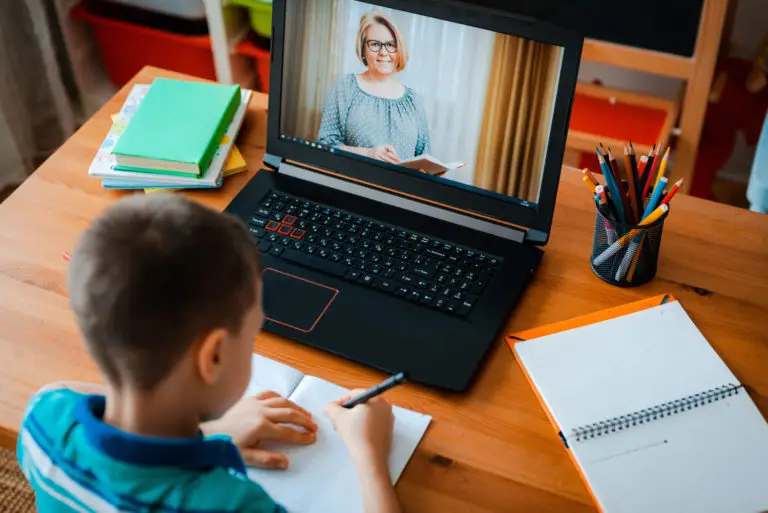It’s safe to say that no one could ever have imagined the sheer scale and impact the Covid-19 pandemic has had on our society and across the world, not least for teachers and parents, who suddenly found themselves having to switch tactics and find new ways to not only keep children occupied but also motivated to continue learning while schools are closed.
With no immediate end in sight – at least not in the next few weeks – educators and parents have been thrust into the world of edtech in a bid to minimise disruption to learning. The power of these resources and platforms has never been clearer with many organisations currently offering free access.
Yet, it isn’t just the day-to-day teaching of our children that we can learn from. Every cloud has a silver lining – and there may be some key takeaways and lessons we can learn from the pandemic which will be key in helping our children develop into well-rounded, diverse individuals with the imagination, determination and influence to change and solve future challenges.
- The importance of interconnectedness
Every day we wait for the daily briefing to understand the current situation and how it is impacting us and others around us. As part of this, the pandemic only highlights how important it is to stay connected with one another – whether that is what’s going on in the local neighbourhood, town, country or even further afield, across the world. While we may be in isolation, what we are learning is actually the exact opposite. We need to be teaching children the importance of understanding how instances like this connect countries and bring people together. Being able to grasp how others navigate and solve issues will be key in learning from one another and being able to come up with ideas and solutions that can work on a global scale.
- Building resilience and wellbeing
It’s an unnerving situation, and with thousands of lives being lost, and an unnatural situation of being ‘locked’ indoors for the majority of the day, it’s no surprise that many of us are experiencing dips in our wellbeing. Anxiety can often feel unavoidable and being thrown out of routine can only exacerbate this. The lesson for students here, is resilience conquers all. It’s important for children to understand how vital resilience is in succeeding in life. Whether its related to emotions and feelings, or in response to a challenge or task, they should be encouraged to know never to give up and to instead try, try and try again, until they succeed.
- The role of technology in education
While there have long been discussions around current education systems and how we can change this on a global scale to reinvent and reinvigorate teaching and learning – and perhaps the greater role that technology can play in this – it has also sadly unearthed the significant social divide. With schools closed and many lessons and activities being conducted virtually, it thrusts a light on the number of families without access to broadband or digital devices. While edtech has huge potential in offering creative and innovative ways for students to engage in their learning, we would do best to first think about how technology can make learning accessible and equal for every student. This is especially important in the near future so that whatever circumstances we may face – and indeed if we have a second or even third wave of Coronavirus – we are better prepared to support our future generation and those disadvantaged communities. The Government’s recent commitment to lend laptops and provide access to internet routers to help bridge the gap and enable every child who is rightly entitled to a high-quality education, is certainly a good start.
- Upskilling teachers
Teachers have faced one of the greatest challenges during the lockdown in having to completely alter the way they provide teaching and learning opportunities. While this has worked for some who may be more au fait with technology and blended learning approaches to teaching, for others this hasn’t been as smooth a transition. Therefore, there needs to be a greater emphasis on providing teachers with the opportunities to upskill and develop as professionals when it comes to teaching in a virtual environment.
There are accredited qualifications on teaching online, for example Wey Education’s ATHE Level 4 Award in Teaching Online, to help teachers understand how best to navigate an online environment, and through specific methods, better engage and motivate students to learn in a flexible way that suits them. Only once we instil the confidence, skills and knowledge for all teachers to teach online we will be better prepared for whatever the future of education looks like – whether that’s the physical classroom, online, or a combination of the two.
- Using real-world experiences to solve issues
Finally, the pandemic has presented us with another good example and opportunity to help children understand the challenges our world faces, and the power that we have as humans in helping to address these issues. When we can show the practical applications of what students learn, it seems to give a greater purpose to what they are being taught and the inspiration to problem-solve and come up with solutions. For instance, the British Science Association’s recent Youth Industrial Strategy Competition is a great example of how students came up with truly innovative projects and concepts to help address the four most pressing issues facing society as outlined by the UK Government: Clean Growth, Artificial Intelligence and Data, Ageing Society and the Future of Mobility. The more we link their learning to real-life, the deeper their understanding becomes, as well as motivating them to become active members of society with the creative skills to change the world and the issues our society is faced with.
While we wait with bated breath to find out when ‘normality’ will resume, it’s important to make the most out of a situation, however bad, and hopefully the lessons learned from the current pandemic will only bring us together as a community, and help us to better safeguard our future generation in the years to come.





